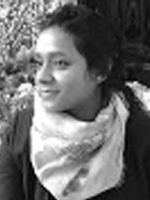Suchandra Ghosh

Areas of Interest
- Sociology of law and religion
- Sociology of gender, family and kinship
Religion, Civil Society and Democracy: The case of the All India Muslim Personal Law Board in India
The shift from the principle of ‘separation’ between religion and state to the idea of religious freedom and the citizens’ rights as a framework for understanding secularism has long been noted in the academic discourse. Drawing on the experiences of state-religion relationships in the post-colonial polities, ‘secularity’ has been conceived in terms of the cultural meanings that underlie the differences between the religious and non-religious spheres. In India, a balance was secured within the plural religious consciousness by subordinating the individual’s rights and liberty to the sensitivity of the religious majority. In the Indian democracy marked by plurality and difference, the functioning of personal law (Muslim personal law in the given case) within the judicial structure has been documented. The interplay between the religious legal procedures and civil courts has been noted in the contemporary discussions on secularism focusing on the sociological debates on judicial reasoning in personal law. This touches upon the delicate terrain of family, kinship and inheritance. The scholarship has engaged with the activism by the Muslim women’s organizations, the All India Muslim Women Personal Law Board (AIMWPLB) and the Bharatiya Muslim Mahila Andolan (BMMA) towards addressing the concerns of gender justice and women’s rights within a framework of Islam. The space for political activism until the Shah Bano case had mainly been occupied by religious leaders, politicians and the ‘secular’ women’s groups with a scant Muslim representation. After that, many Muslim women-led organizations such as the Awaaz-e-Niswan (AeN), the Muslim Women’s Rights Network (MWRN) and the BMMA advocating for women’s rights, emerged in urban areas across the country. Their efforts and voices from within the community contributed to widening the democratic space of debate. Although this called attention to a diversity of viewpoints within the community, the activities of the All India Muslim Personal Law Board (AIMPLB), a religious body that was established in 1973 to protect the Constitutional rights and secure the welfare of the Muslims in the country, remains unknown. The present study seeks to examine the civil, pluralist manifestations of the board (AIMPLB) with due reference to its engagements with the judiciary and other social institutions in context of a secular democracy. The thrust of the study will be on the question of ‘representation’ by the AIMPLB and other competing bodies within Muslim community and the process of secularization, as a democratic state produces the religious bodies that dialogue, contest and negotiate with the state for its Constitutional rights. The study refrains from reckoning with the strengths and weaknesses of the secular political forms in a manner that may resurrect the religious-secular divide. Instead, it argues that the concept of the ‘secular’ in these organizations’ social and judicial engagements, emerges at the event of their assertion as a community and a crusader for religious rights. Focusing on the key issues and the historical junctures that marked the emergence of the competent organizations asserting their claims over religious freedom and citizenship rights, the study will examine the board’s tryst with secularity.
Biography
Assistant Professor in Sociology, Jhargram Raj College, West Bengal Education Service, West Bengal (India)
Doctoral Candidate in Sociology of Law and Religion (Thesis submitted), Department of Humanities and Social Sciences, Indian Institute of Technology Kanpur (India)
MPhil Scholar in Sociology of Education, National University of Educational Planning and Administration (NUEPA), New Delhi (India)
MA Sociology, Department of Sociology, University of Hyderabad (India)
Relevant Publications
- Ghosh, Suchandra, and Anindita Chakrabarti. “Adjudication of Personal Law and the Question of Secularity: An Analysis of Judicial Practice in Sharia Courts of Uttar Pradesh.” In Religion and Secularities: Reconfigurations of Islam in Contemporary India. Edited by Anindita Chakrabarti and Sudha Sitharaman. New Delhi: Orient BlackSwan, forthcoming.
- Chakrabarti, Anindita, and Suchandra Ghosh. “Judicial Reform vs Adjudication of Personal Law: View from a Muslim Ghetto in Kanpur.” Economic & Political Weekly 52, no. 49 (2017): 12–14.
- Ghosh, Suchandra, and Anindita Chakrabarti. “Kaumi Ek Jayate: A Call for Interfaith Unity.” Economic and Political Weekly, no. 27 (2015): 26–27.


